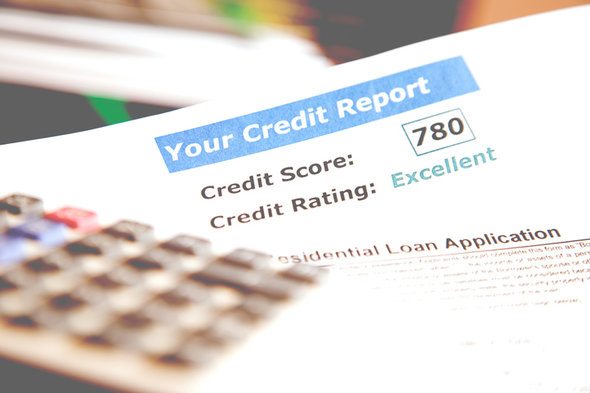The information that credit bureaus collect affects just about every aspect of your life. Whether you’re approved for a credit card, get a good mortgage rate, rent an apartment or even get a job – they all can hinge to varying degrees on your credit score. So when a credit bureau has something wrong, you must tell them. The three major bureaus – Equifax, Experian and TransUnion – offer online services and prefer that you use their online forms instead of calling. But sometimes you need to talk to a live person, and below is how you can accomplish that.
A financial advisor can help you build a long-term plan that gets your credit in order.
Why Would I Need to Contact a Credit Bureau?
The three big credit bureaus or credit reporting agencies – Equifax, Experian and TransUnion – create credit reports that reflect consumers’ creditworthiness. The reporting agencies are for-profit businesses and sell their reports to other businesses, such as insurers, credit card companies, banks and employers.
These businesses in turn factor in these credit reports when making decisions such as whether to offer you a credit card and at what interest rate. So it’s important to monitor your credit reports and make sure the information on them is correct. If you ever find a mistake, you should contact the credit bureau to correct the information.
You may also need to contact a credit bureau if you think that you’re a victim of credit fraud. That could mean placing a fraud alert on your account or freezing your credit so that no one can open a new line of credit in your name. Don’t forget that you can get a free copy of your credit report three times per year.
How to Talk to a Real Person at Equifax
Equifax has multiple phone numbers that you can use to speak with a real person about your credit report. The number that you use will depend on what you need help with. We recommend trying to contact the correct number. If you call the wrong number, they will simply say they cannot help you and then direct you to call another number. You can find all of Equifax’s contact information on its website, Equifax.com.
If you want to contact Equifax with a general inquiry, you can reach the company’s customer service via phone at the number (888) 378-4329. Just make sure to call between the hours of 9 a.m. and 9 p.m. ET, Monday through Friday, or 9 a.m. to 6 p.m. on weekends.
And, if you have a company account with the credit reporting agency, you can also use 1-888-407-0359 to ask questions and make changes to your account. You can find all of Equifax’s contact information on its website, Equifax.com.
How to Talk to a Real Person at Experian

Your credit card debt and other financial details are also tracked by Experian, which encourages customers to use its website for most things. However, there are three main phone numbers that you should know if you want to talk to someone at Experian.
If you have any questions related to fraud and identity theft call (888) 397-3742 (1-888-EXPERIAN)You can place an immediate fraud/security alert on your credit with this number. You can call the same number, or 877-FACTACT, if you want to order a copy of your credit report.
If you have a question about something after you read your credit report (such as incorrect information), you will need to have a copy of the credit report. On the report, you will find a 10-digit number. This number is different for each credit report and you will need it for the representative to help with any issues related to your specific report.
If you need help with anything related to your membership account, you should call Experian’s customer service at (866) 617-1894. You will need to call while the Experian office is open to speak with someone. The hours are 8 a.m. to 8 p.m. CT, Monday to Friday, and 8 a.m. to 6 p.m. CT, on the weekends.
How to Speak With a Real Person at Experian
| Reason for Calling | Phone Number |
|---|---|
| Buying a credit report or placing a fraud alert on your credit file | (888) 397-3742 |
| Question about a recent credit report | Call the number on your document from Experian |
| Question about your Experian membership account | (866) 617-1894 |
How to Talk to a Real Person at TransUnion
TransUnion has one general support number that you can use to talk to a human. This includes help with your credit report (such as dispute information, freeze your account or report fraud), your credit score or any general questions about credit cards. That customer support number is (800) 916-8800 and the hours of operation are 8 a.m. – 11 p.m. ET Monday thru Friday and 8 a.m. – 5 p.m. ET Saturday and Sunday.
You will hear an automated service when you first call this number. Press 4 in order to speak with a representative. Then you’ll need to press 1 if you have a TransUnion File Number or 2 if you don’t have one.
A TransUnion File Number is a unique identification number that you can find in the top right of your TransUnion credit report. You do not need a number to speak with a representative. However, you will need it to do anything related specifically to your credit report. For example, the file number is necessary for things like credit card disputes.
What to Have Ready Before You Call a Credit Bureau
If you’re planning to speak with a representative at a credit bureau, it’s helpful to be prepared before picking up the phone. The more information you have on hand, the faster and smoother the call will go, especially if you’re disputing an error, placing a fraud alert, or unfreezing your credit. Most credit bureau representatives will not proceed unless they can verify your identity and review the specific issue.
Here’s what you should have ready:
- Your full legal name, date of birth, and Social Security number. This helps verify your identity.
- Current and previous addresses. Some credit reports are tied to older addresses. Be ready to confirm past residences.
- A recent copy of your credit report. If you’re calling about an issue on your report, have a copy in front of you. Note any error or disputed item, and locate the report or file number, usually listed on the top or bottom of the report.
- Documentation related to your dispute. This may include bank statements, letters from creditors, police reports (in cases of identity theft), or confirmation emails. You won’t be able to upload them over the phone, but having details ready helps the representative understand the issue.
- Any prior case or reference number. If you’ve contacted the bureau before, have the case number or confirmation code from that call or online submission.
- Pen and paper (or a note-taking app). Take down the representative’s name, call reference number, and any instructions or timelines they give you during the call.
When You Should Not Call a Credit Bureau
There are situations where contacting a credit bureau by phone will not help, and knowing when not to call can save time. Disputes involving inaccurate data from a lender fall into this category. Credit bureaus do not generate the information on your report; they only publish what creditors supply. If the underlying lender has not corrected its records, a phone call cannot override that data. The only effective approach is submitting a dispute through the bureau and simultaneously asking the lender to fix the error at the source.
Phone calls are also ineffective for issues that require formal documentation. Identity theft cases, mixed credit files, and extended fraud alerts require written or uploaded evidence. Representatives cannot resolve those matters solely through conversation, because federal law requires bureaus to keep a documentation trail. Starting with the bureau’s online dispute or fraud center is the required first step.
Some requests cannot be completed by phone at all. Removing a credit freeze, updating personal identifying information, and adding or changing security freezes typically require online verification or mailed documents. Phone representatives can explain the process, but they cannot complete it. Attempting to resolve these items by phone usually leads to delays.
Finally, credit bureaus cannot alter your score, remove accurate negative information, or speed up reporting timelines. Consumers often call expecting exceptions, but representatives are bound by the Fair Credit Reporting Act. Accurate late payments, collections, bankruptcies, and hard inquiries must remain for the standard reporting period. Calls cannot change legally required timelines, and bureaus do not have discretion to “override” factual data.
Bottom Line

If you need a credit report or have an issue with your credit, you’ll need to contact a credit bureau. Each of the three national credit bureaus has a website where you can do most things. They prefer that you use online forms instead of calling. But sometimes it’s comforting to speak with a real person who can answer your specific questions. You may have to wait quite a bit of time, but it’s important to have patience if you must talk to a live person. If you have other questions about your credit and finances, consider talking to a financial advisor.
Tips for Using a Credit Card Responsibly
- It can be tempting to keep swiping your credit card. But making a budget and sticking to it can be immensely powerful for your finances. A financial advisor can help you create a road map to make sure you’re hitting your goals and not getting into debt. Finding a financial advisor doesn’t have to be hard. SmartAsset’s free tool matches you with vetted financial advisors who serve your area, and you can have a free introductory call with your advisor matches to decide which one you feel is right for you. If you’re ready to find an advisor who can help you achieve your financial goals, get started now.
- One good piece of credit card advice is always to avoid as many fees as possible. Fees can make it harder for you to keep your spending down. Higher bills, in turn, could be harder for you to pay back in full. Here are some credit card fees that you should avoid.
Photo credit: ©iStock.com/Milkos, ©iStock.com/sturti, ©iStock.com/fstop123
